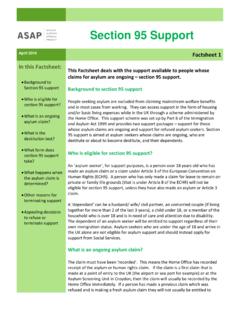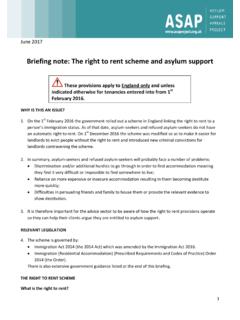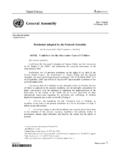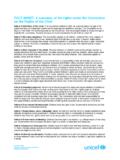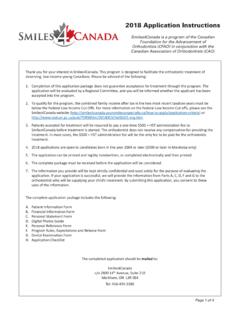Transcription of Section 4 Support - ASAP
1 Section 4 Support April 2016 Factsheet 2 In this Factsheet: What is s4 Support ? Eligibility criteria Burden of Proof The destitution test Reg 3(2) criteria All Reasonable Steps Physical Impediment to Travel Pregnancy No Viable Route of Return Application for Judicial Review Breach of Human Rights Fresh Representations This Factsheet looks at s4 Support for refused asylum-seekers those who have come to the end of the asylum process, been refused asylum and exhausted all appeal rights. What is s4 Support ?
2 Section 4(2) of the Immigration and Asylum Act 1999 (the IAA 1999 ) allows for the provision of Support to refused asylum-seekers. The Home Office gives Support to refused asylum-seekers who are destitute and meet a narrow set of criteria (outlined below). The Support consists of accommodation and a week via a payment card. In contrast to s95 Support , there are no cash payments. Dependants of refused asylum-seekers may also qualify for s4 Support (see Factsheet 13 Getting Support for dependants under s95 and s4 Support ).
3 For dependants of refused asylum-seekers aged under 18, a key fact to check is whether they were born before the asylum-seeker had exhausted all their appeal rights. If so, the refused asylum-seeker should still qualify for s95 Support until their youngest child turns 18 (see s94(5), IAA 1999). The eligibility criteria To qualify for s4 Support , a refused asylum-seeker has to meet certain conditions found in the Immigration and Asylum (Provision of Accommodation to Failed Asylum-Seekers) Regulations 2005 (the Regulations ).
4 They must: be destitute, or be likely to become destitute within the next 14 days (or 56 days if they are already receiving Support ); and satisfy one of the five conditions set out in regulation 3(2) (a)-(e) of the Regulations (see below). Burden of Proof The burden is on the applicant to prove on the balance of probabilities ( more likely than not) that they qualify for Support . Therefore the Home Office will require evidence of destitution and that one of the conditions in regulation 3(2) is met. Refused applicants (or people notified that their Support will be terminated) can normally appeal to the First-tier Tribunal (Asylum Support ) (the Tribunal ) (see Factsheet 3 - Appealing to the Support Tribunal).
5 ASAP Factsheet 2 Section 4 Support The destitution test An applicant for s4 Support must show that they are destitute or are likely to become destitute within 14 days. A person is destitute if they do not have adequate accommodation or do not have enough money to meet essential living expenses for themselves and any dependants (see Factsheet 5 - Proving Destitution). Regulation 3(2) criteria In addition to establishing their destitution, an applicant must also show they meet one of the five conditions in Regulation 3(2)(a)-(e).
6 S/he is taking all reasonable steps to leave the UK or place her/himself in a position in which s/he is able to leave the UK S/he is unable to leave the UK because of a physical impediment to travel or for some other medical reason S/he is unable to leave the UK because in the opinion of the Secretary of State there is no viable route of return S/he has applied for judicial review of the decision on her/his asylum claim and has been granted permission to proceed The provision of accommodation is necessary to avoid breaching a person s human rights 3(2)(a) All Reasonable Steps To qualify under this condition, a refused asylum-seeker must show they are taking all reasonable steps to leave the UK.
7 This means the Home Office is likely to refuse Support if it identifies one outstanding step which it considers reasonable for the applicant to take. Whether or not a particular step is objectively reasonable will depend on the applicant s circumstances (for example, whether they have valid identity and/or travel documents). Applicants are expected to demonstrate that they are pursuing the relevant steps proactively (and continue to do so after Support has been granted). Each case will depend on its specific facts, but two examples include applying to the Home Office s voluntary departure service or seeking assistance from the Embassy of their country of origin.
8 Important note: Refused asylum-seekers should be advised that making an application to return voluntarily could negatively impact on any future fresh asylum claims. For this reason, they should seek independent legal advice before making this type of application. 3(2)(b) Physical Impediment to Travel A destitute refused asylum-seeker will qualify under this condition if they can show that they are unable to travel due to a physical or mental health problem. It is not enough for the applicant to show s/he is receiving treatment in the UK or to The information contained in this Factsheet is intended for guidance only.
9 While every effort is made to ensure it is correct at the time of publication, it should not be used as a substitute for legal advice. For client specific advice please contact ASAP have a doctor s opinion that it would be preferable if they did not travel. They must have a medical condition which makes them unable to travel. Evidence is required so written documentation should be obtained from a medical practitioner specifically stating the individual is unable to travel (also giving the reason why) and when they are likely to be able to travel.
10 The medical adviser should complete the Section 4 Medical Declaration form on the Home Office s website. The Home Office will reimburse doctors for completing a Medical Declaration (see s4 Instructions, para ). The completed invoice and form should be sent to (marked for the attention of Steve Smyth). Important note: Pregnancy the Home Office s policy is that women in the late stages of pregnancy (around six weeks before their expected due date, or earlier if there have been complications), or those with a baby under six weeks old, are accepted as being unable to travel.

